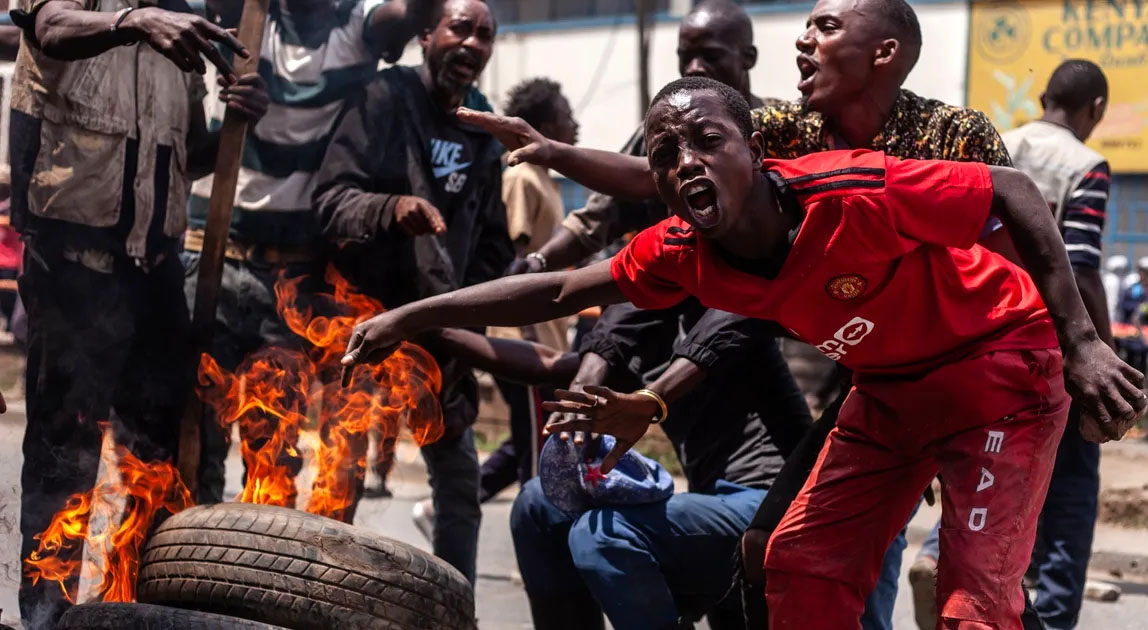
Photo Credit: Ap Photo/Samson Otieno
Protesters in Kenya have declared their intention to shut down Nairobi’s Jomo Kenyatta International Airport, escalating anti-government demonstrations that have now stretched into their sixth week. The unrest, driven by widespread dissatisfaction with President William Ruto’s administration, has resulted in at least 50 deaths and over 400 injuries, according to the Kenya National Commission on Human Rights.
The protests initially erupted in response to a controversial finance bill that proposedsignificant tax hikes on essential goods. Despite the bill being withdrawn, the focus ofthe protests has since shifted to broader issues of government legitimacy, corruption, and police brutality.
On Tuesday, social media posts encouraged demonstrators to block all access to the airport, aiming for a “total shutdown.” In response, authorities have ramped up security and warned that trespassing on protected areas would be met with legal consequences. Acting Inspector General of Police Douglas Kanja urged demonstrators to respect these legal boundaries.
President Ruto, who recently fired and then renominated most of his cabinet, has expressed frustration over the ongoing unrest. He described the protests as anarchic and pledged to protect the nation against further violence. However, his efforts to quell the demonstrations have been met with renewed public anger and demands for his resignation.
The protests have been largely youth-led, with organizers leveraging platforms like TikTok and X (formerly Twitter) to mobilize support. This decentralized and leaderless movement has particularly vexed the government, making it difficult to negotiate or quell the unrest through traditional means.
Amid the chaos, the Kenyan High Court has intervened, ordering the suspension of military deployment against protesters following a legal challenge. Despite this, fears of further violence and abductions persist, with civil society groups reporting numerous instances of arbitrary arrests and police brutality.
As the situation unfolds, the international community watches closely, concerned about the potential for further escalation and its implications for regional stability. The protests underscore deep-seated issues within Kenyan society, including economic inequality, youth unemployment, and systemic corruption, which have been exacerbated by the government’s recent policy proposals.

















